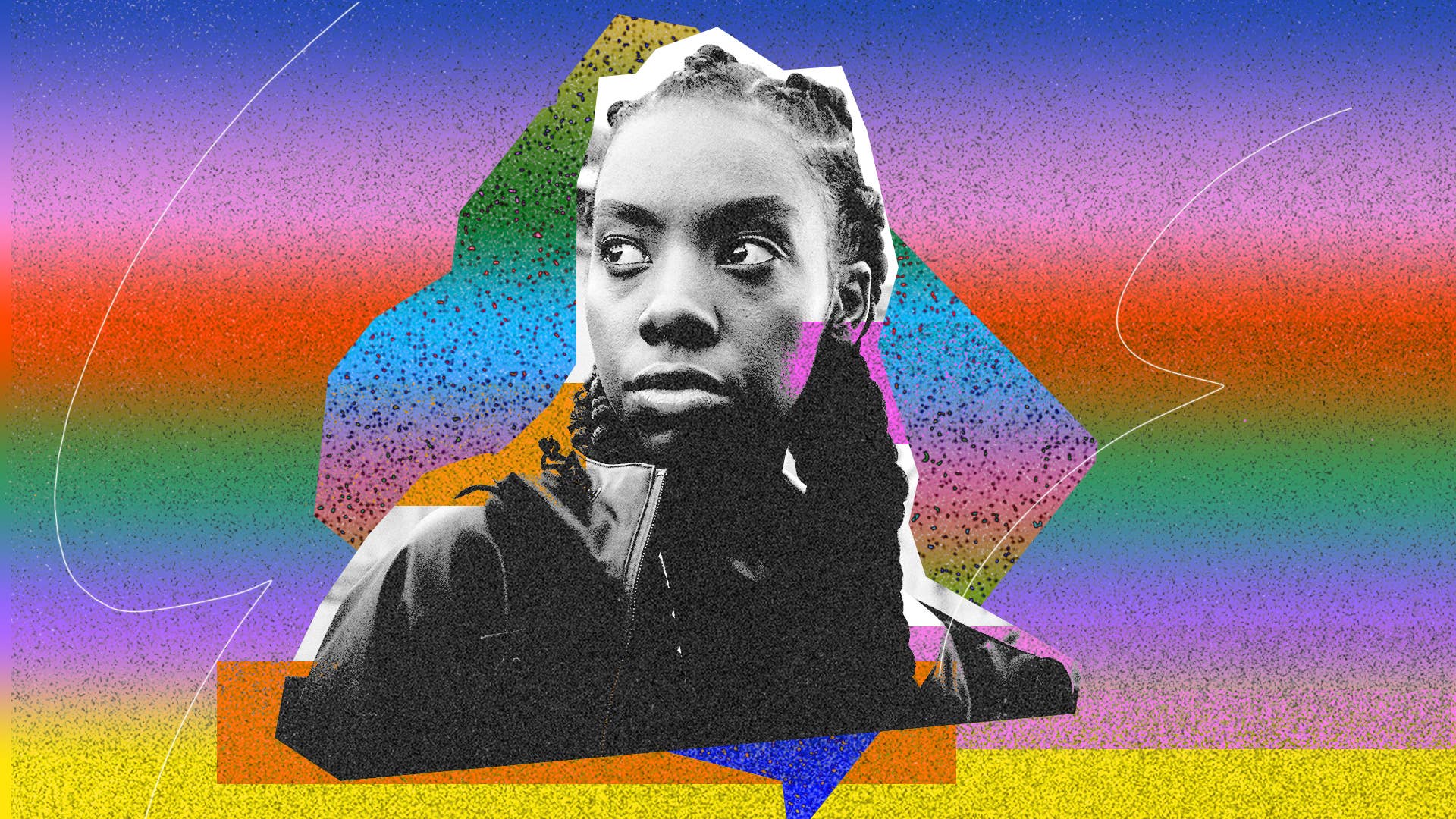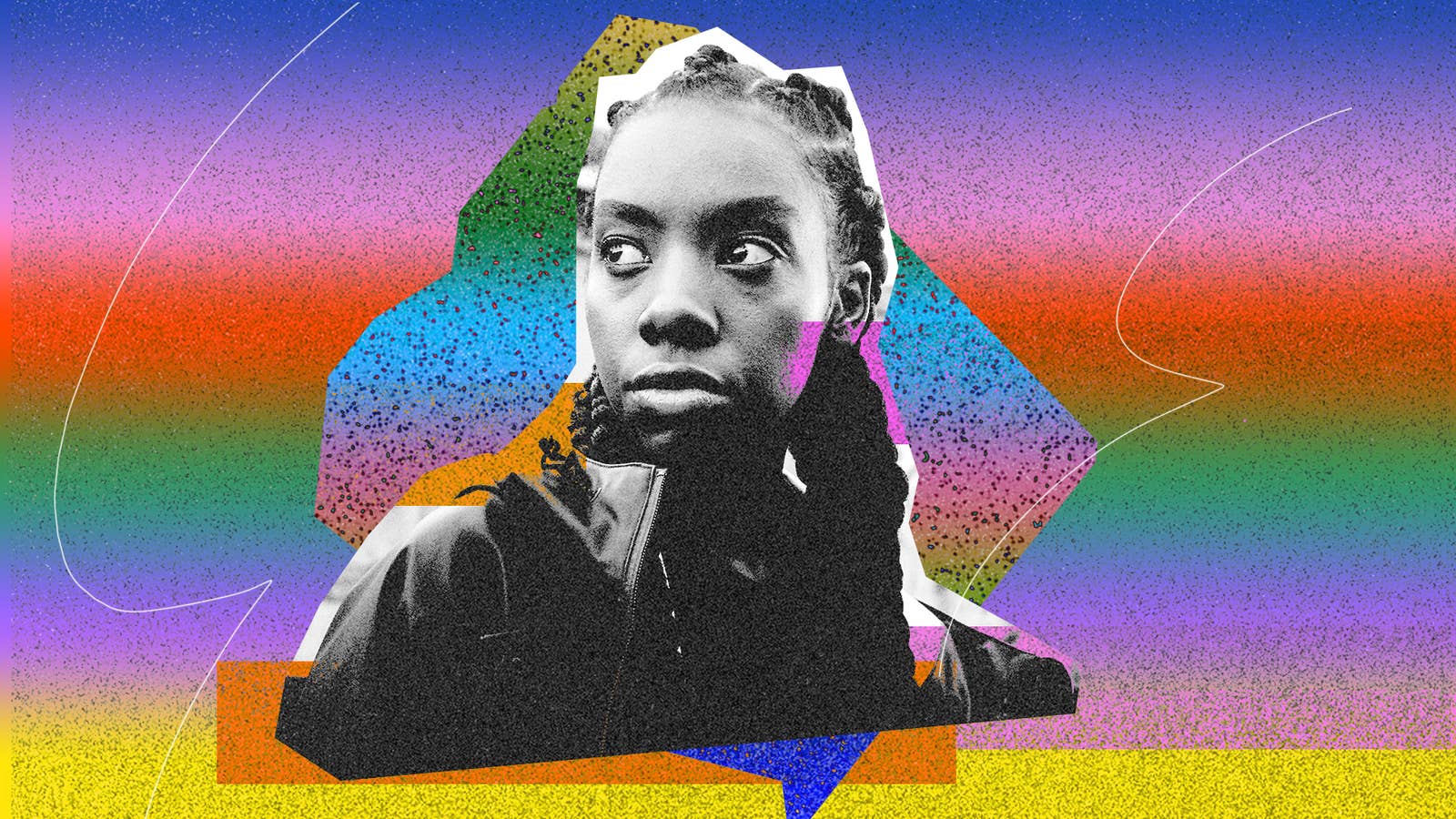
Dua Saleh fell into music by way of poetry, for the most practical reason you could imagine––they were a broke college student and poetry slam performances would pay. What they didn’t foresee was the hypervisibility they’d get as a result of sharing their intimate works on stage, many of which were largely inspired by some dark depressive moments after coming out as non-binary. While they were grappling with a heavy bout of dysphoria, melodies began flowing out of them at their poetry shows, and people started telling them they loved their voice. A voice we now know, from projects like their critically acclaimed Nūr, as a mix of siren’s song and a conversation in a smoky room, dimly lit, where you can’t help but lean in closer so you don’t miss a word.
The unexpected feedback led them to play with music production, in a lower pressure, more freeform way than poetry had allowed them in the past, during cathartic dysphoric moments––when the “wounds were still open and I was gushing,” they said. A few years into releasing music and continuing to write poetry, Saleh now gets to nurture a symbiotic relationship between the two mediums, which bring different gifts but also feed each other. “[Music] definitely feels more free, definitely feels like I’m floating in the wind and existing in a lot more emotions, allowing myself to exist in a lot more emotions. I feel like with poetry, I often use it to deal with trauma. So, sometimes there’s humor, but I feel like it’s more so intentionally about me working through the harder things that I’ve dealt with,” Saleh says.
With those processes in mind Complex caught up with Saleh to talk about the relationship between body and art, how the world interacts with their identities, and more. Read on to see them share their thoughts below.
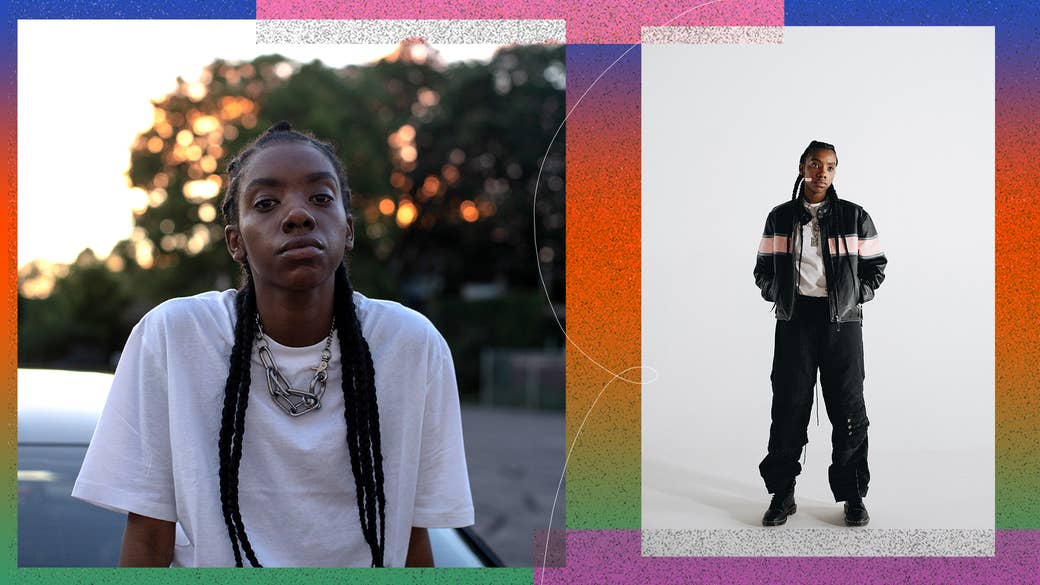
Saleh on how making music relates to self-expression:
I feel like music has allowed me to tap into different ways to play with my voice. Oftentimes with dysphoria, I’ll sometimes go into the session and I’ll listen to my voice and I’ll be like, “I can’t do it today.” So I’ll lower my voice often when I’m singing, extremely, and it’s been weird. Or I’ll do it really high, I feel like I’ve been singing pretty high, it’s kinda funny. It does help with my dysphoria, which I still don’t understand why, [vocalizing] sounding like an alien like that does. Maybe it just reminds me of cartoons, and cartoons seem neutral to me.
On navigating the impact of hypervisibility as a performing artist:
I wasn’t trying to get into any of these art worlds that I was thrust into. And gender is a very personal journey for each person, we definitely understand how it’s complex. I’m only speaking for myself, but also probably for a lot of other non-binary and trans people. It was complicated because I’m in constant communication with my gender and I’m constantly trying to expand my understanding of my gender. And so having a platform out there and coming out with my pronouns, they/them pronouns, and then coming out with neopronouns, which is a whole different thing, because people––even in the trans community––aren’t really as used to it or don’t know the history and don’t know how they were the first pronouns that a lot of non-binary people were using to refer to themselves in literature and academia.
So it felt vulnerable––and it still feels vulnerable––having people constantly question my gender or just getting a lot of transphobic hate, but also all of my other identities that are in flux with one another at all points of time, me being Black and queer and Muslim, obviously trans, somebody who uses neopronouns, it feels like I’m always in this raw state where people are always hyper-fixated on those aspects of my existence, which is cool. But I feel like there’s more depth to each human and there’s more humor and joy and light and anger and fear, and there are more things to a person outside of just their gender identity, and similarly to people’s art.
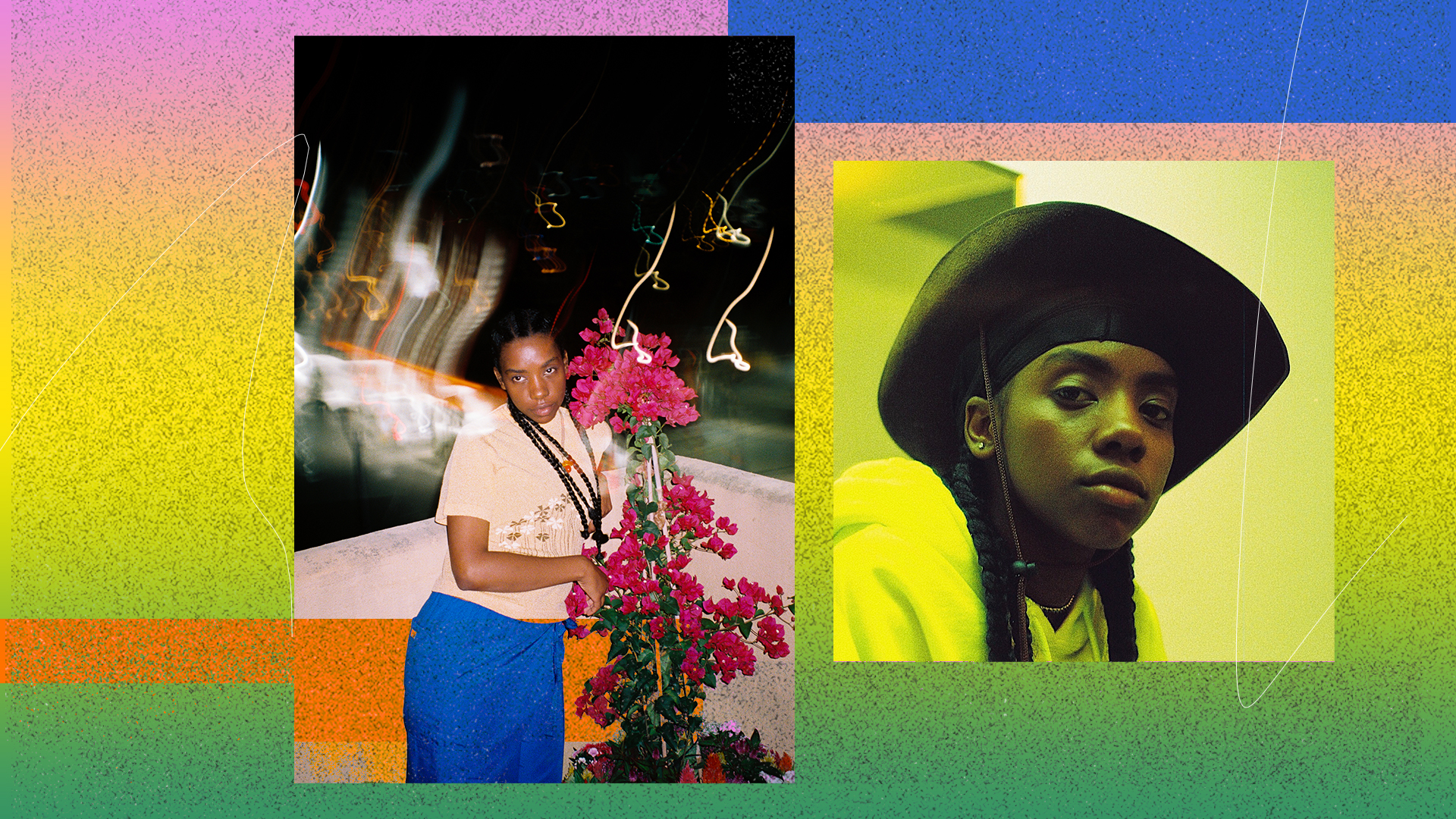
On visual expression:
I’ve definitely been playing a lot more, with hair as well. But I feel like I have been trying to tap into expressions of self that are more rooted in creating friction within my own understanding of what my aesthetic ought to be, based off what people project or what people expect out of me. When they hear “non-binary,” I feel like people have a very white supremacist understanding of what that would be or like a diluted understanding of what that means for people who are Black and brown or not from the Western world. So it’s like me being like, “No, forget that. I can do whatever I want.”
On defying queer visual stereotypes:
Sometimes people have this kind of expectation of a non-binary person. I think for a lot of Black folks, having specific styles of hair, it’s very sacred and it’s tied to a lot of ritualistic kind of upkeep that’s also tied in with a lot of trauma from how people commoditize our hair and our understandings of our expression.
I feel like people expect me to have short hair and have green hair and for me to be super small, petite, or dressed in a very specific way. Granted, I still fit into a Western understanding of beauty standards in terms of body and I don’t deal with fatphobia, which is also tied in with anti-Blackness and a lot of respective cultures or respective understandings of bodies within the West.
But in relation to hair, in relation to adornment, rituals and in relation to the spectacality of transness and the spectacle of Blackness, I think there are a lot of expectations that I have to fit into, like a very specific mold of understanding of what that means.
I just don’t like people telling me what to do or expecting me to be a certain way ever.
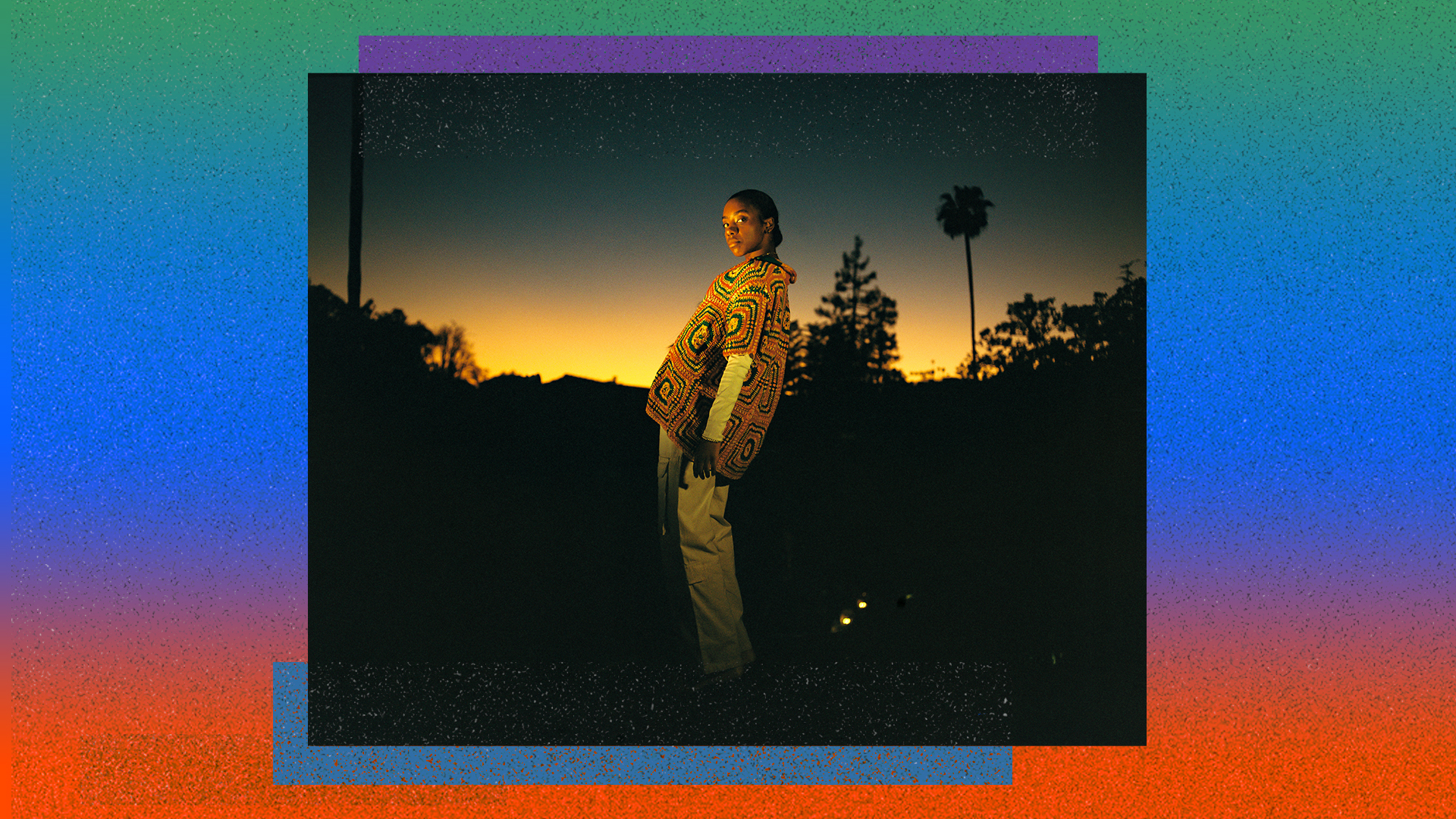
On their love of neopronouns:
I just have a deep-seated love for trans and queer history overall. I love reading about it. I love hearing about it. The letters of my neopronouns are used to write a love letter to the trans community, just to be like “I love y’all.” Because our history is sacred, our history is important and a lot of people don’t have access to certain knowledge about transness, so I think it’s also cool just to be public about it.
I think also I just like the neopronouns, I feel like they fit me better, not all the time, but they’re just fitting. There’s an element where I’m just like, “Oh, this sounds really nice.” Or it sounds nice coming out of my mouth or hearing other people saying it.
On what they hope people get from their work:
One thing is honesty. I feel like that’s something that just kind of spills out of me with music because I guess it’s the most instinctive thing for me in terms of art making. Oftentimes with poetry, I’m a little bit more meticulous or thoughtful when I’m in the beginning process, when it’s coming into fruition. And I think with music, oftentimes I will start by freestyling with the melodies, which is just feelings, letting things sit in the body, the diaphragm, chest, et cetera. And then the words will come later.

